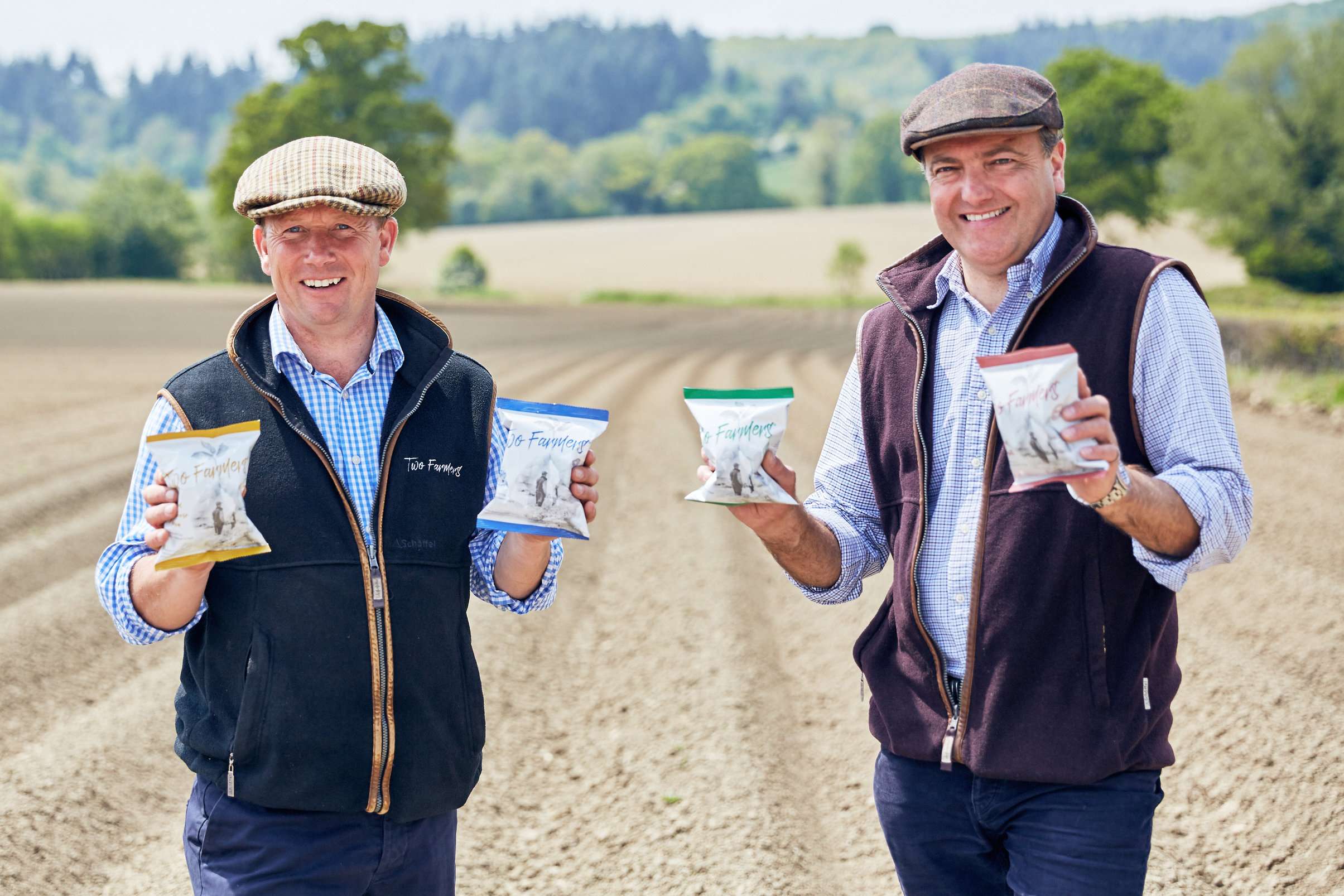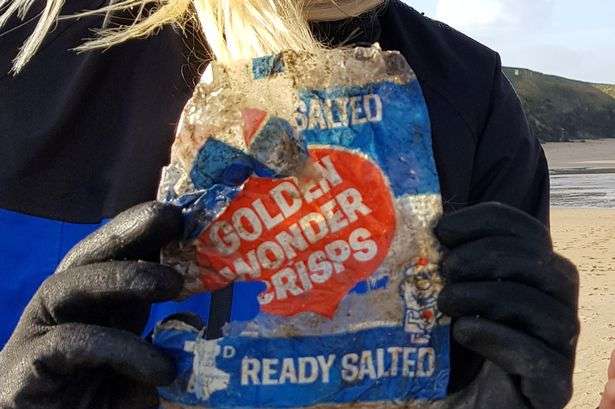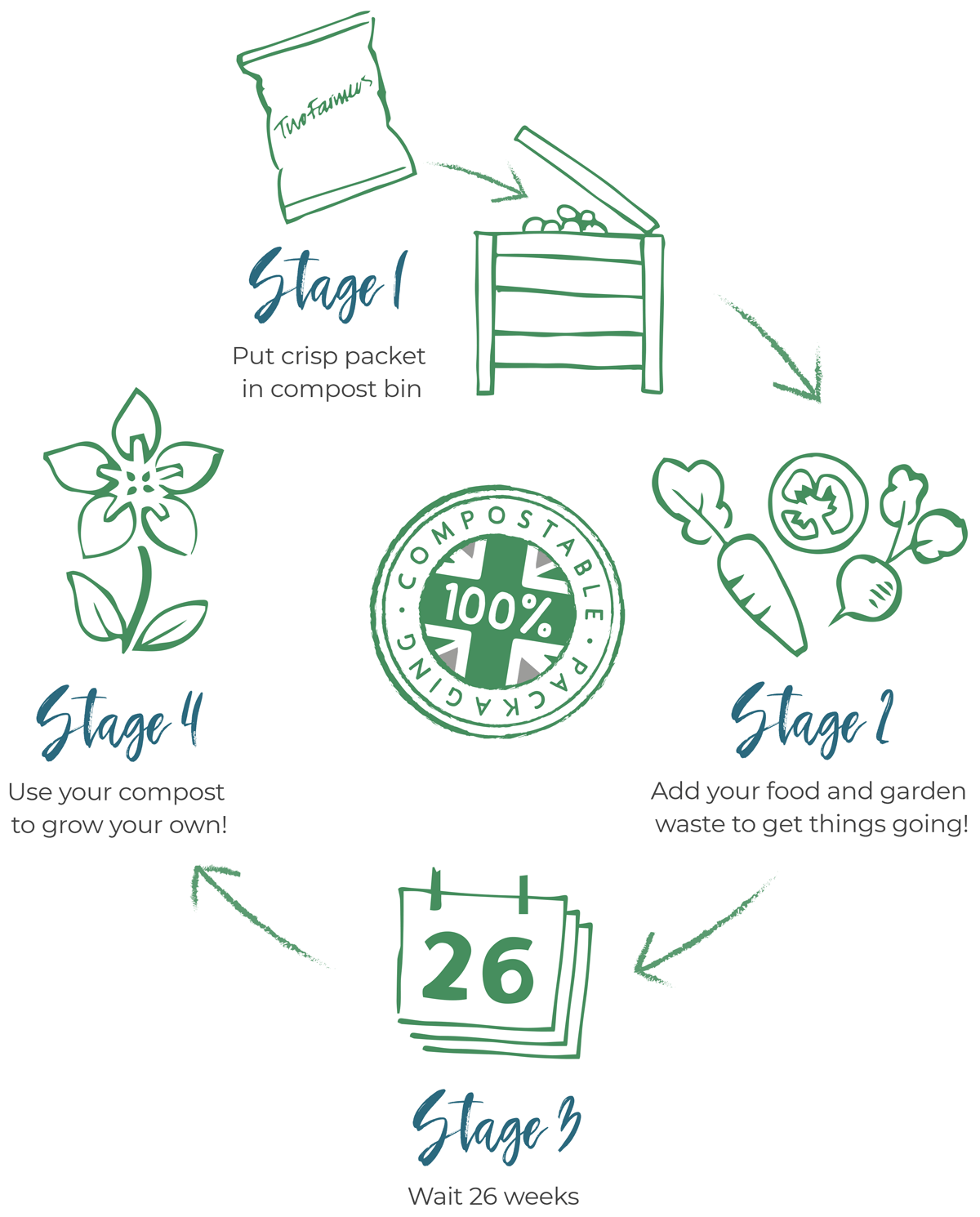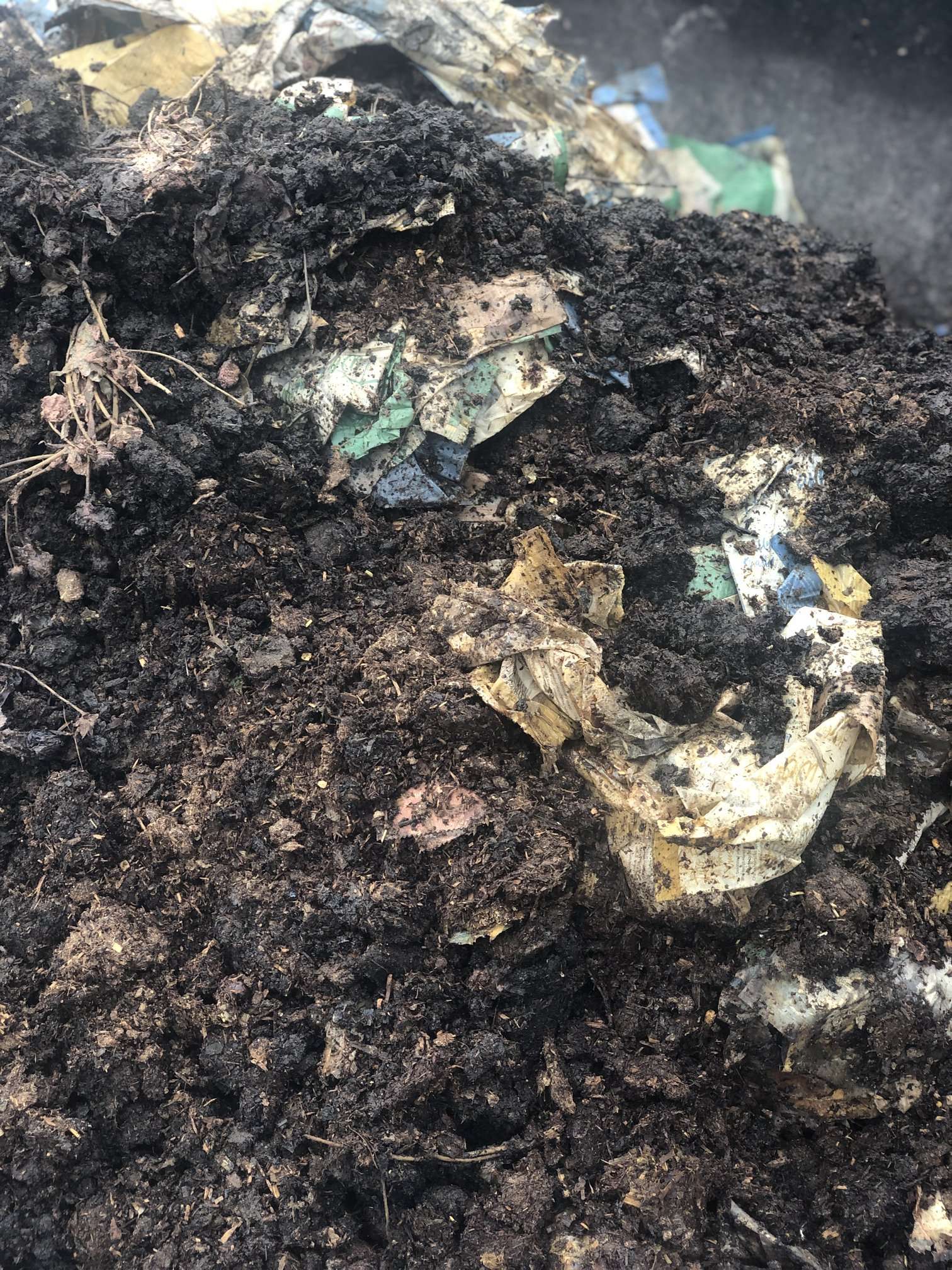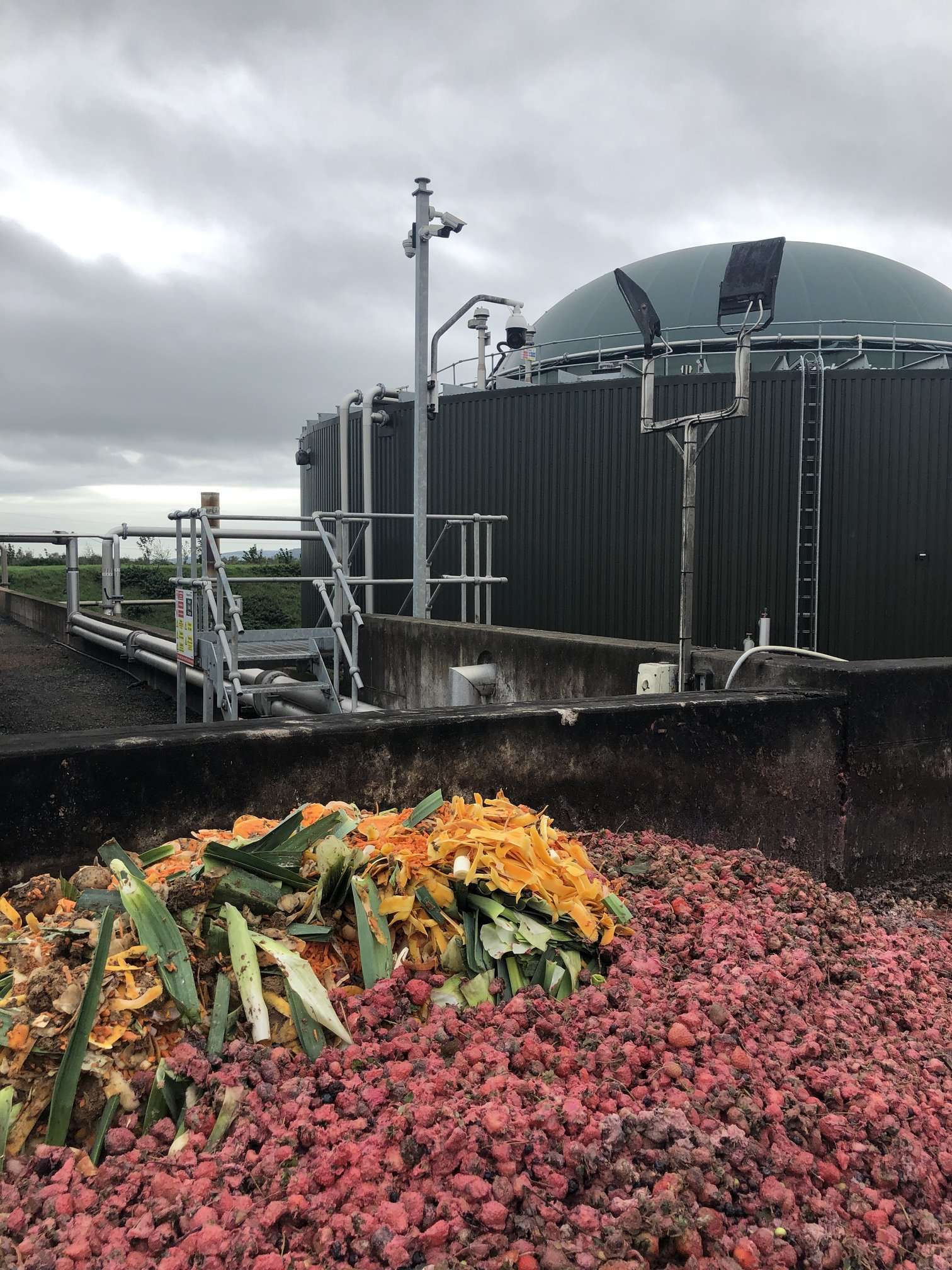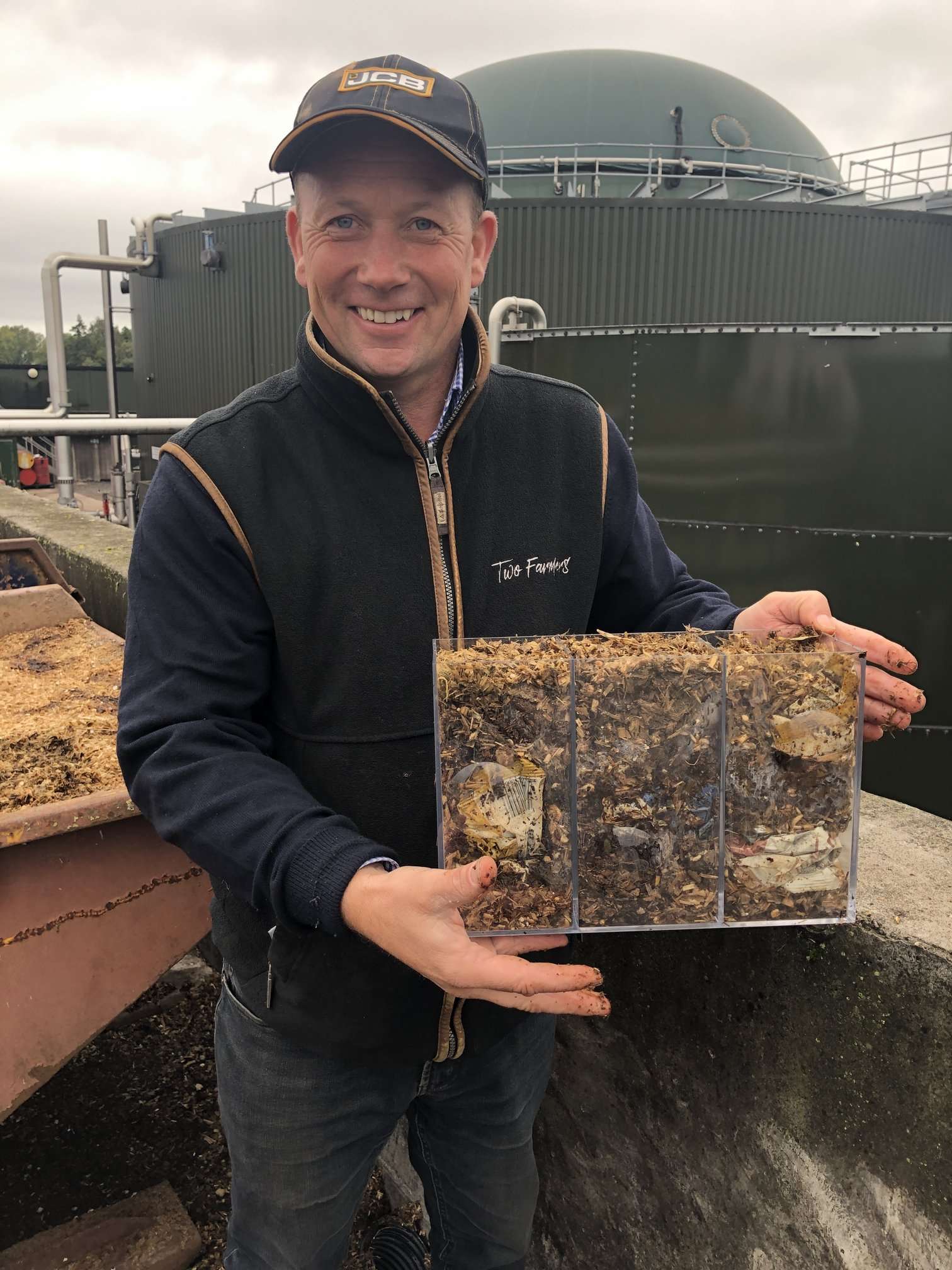Find out how two potato farmers are using technology to make the UK’s first plastic-free and 100% compostable crips packet.
Hello, we are Mark Green and Sean Mason and we make the nation’s favourite snack, crisps! We love crisps and we love the countryside and we want to look after it always. Our crisps are called Two Farmers, because we are two farmers from Herefordshire!
What does compostable mean?
‘Compostable’ means that the material will break down back into tiny particles and make the soil even better!
Normally crisp packets are made from plastic which doesn’t break down for a very long time. You will have probably seen old crisp packets when you’ve visited the beach or countryside. This packet was found in Cornwall and was over 50 years old…
Image: Cornwall Live
Making this special crisp packet took three years of hard work but we didn’t give up! We had to find special materials and we found one that worked, sustainable eucalyptus pulp.
Once you’ve eaten our crisps you can put our packet on the compost heap and it will disappear in just 6 months rather than 50 years – what a difference!
Here’s how it works…
We have already saved over 2 million bags from littering our countryside and waterways and we want to save many more by encouraging families to eat responsibly. Here you can see our packets biodegrading (turning back into soil) in our compost heap, how cool is that!
How we use renewable energy technology to fry the crisps
Our plastic-free bag was just the beginning and now our whole operation is potato powered! We grow the potatoes, peel the potatoes and then use their skins in our anaerobic digester.
This unique machine acts just like a cow’s stomach and it’s very greedy so we have to feed it lots. Along with the potato scraps we feed it all sorts of waste product from our farm and our neighbours.
It then produces renewable energy (energy made from the waste) which powers the fryers that cook the crisps!
Here is Mark standing in front of the anaerobic digestion plant showing how our packets break down in his mini-composting unit. This is a great project that you could do at home or at school, Mark found his on Amazon!
We hope you found this interesting. We certainly would like more people to find out how to look after our precious planet so you can ask your parent or guardian to follow our journey at www.twofarmers.co.uk
Explore
Discover more fun activities and videos by farmers and chefs in our #LockdownLearning Hub.

